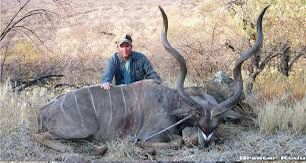KATE WEBB, a pioneering journalist whose powerful reputation was forged on the front lines of the Vietnam War and who roamed Asia for nearly 35 years covering coups and strife from India to the Philippines, has died.
“There wasn’t a story that she ever covered poorly, but it was her war reporting that drove her and incidentally turned her into an icon of her generation,” said Alan Dawson, a colleague of Webb’s at the news agency United Press International. The New Zealand-born Webb (64) first went to Vietnam in 1967 and spent more than six years covering the war for UPI, building a reputation for brave, honest reporting and insightful writing.After the war, she worked for UPI and later Agence France Presse, covering some of the region’s biggest stories from South Korea to Afghanistan and half-dozen other countries, as well as Iraq during the first Gulf War.After covering the fall of the Suharto regime in Indonesia in 1998, she retired from journalism in 2001, saying she felt “too old to keep up with front-line reporting, and that was the only kind I liked”.Webb, who lived the hard-drinking, chain-smoking lifestyle of her journalistic generation to the hilt, returned to her family’s adopted home of Australia, where she lived in relative seclusion.Webb graduated from Melbourne University with a philosophy-related degree, but ended up as a cub reporter at the Rupert Murdoch-owned tabloid Daily Mirror in Sydney.She quit at age 23 and went to Vietnam, ending up with UPI.She became one of the few women to cover the war full-time.Colleagues said she was courageous, empathetic, and dedicated.”She never sought to be a role model or a trailblazer, but the duties were thrust upon her,” Dawson wrote for the Bangkok Post.”She was only in it for the news.”In April 1971, she was among six people captured while covering a battle in Cambodia.Webb was given up for dead after officials said a body they found was probably hers, prompting front page news reports and an obituary in The New York Times.But after more than three weeks, she emerged from the jungle and phoned the UPI office in Phnom Penh, writing later about days spent in stifling bunkers and all-night marches, with almost no food.She struggled with the attention that came from the ordeal.”She never worked at being interesting or being a character.Almost the reverse,” said another Vietnam-era UPI colleague, Paul Wedel.”She seemed to want to be ordinary and matter-of-fact; just get on with the job.”Webb was badly injured in a motorcycle accident in India, and later badly beaten by a militia member in Kabul who whacked her head against a floor and tore a clump of hair out by the roots.”People always think I must be so tough to survive all this,” Webb told an interviewer from the Foreign Correspondents Club of Hong Kong in 2002.”But I’m a real softie.But maybe that’s what it takes – you have to be soft to survive.Hard people shatter.”After the war, she roamed Asia, covering coups and the fall of governments from India to the Philippines; the Tamil Tiger uprising in Sri Lanka; Russia’s withdrawal from Afghanistan; the death of North Korean leader Kim Il Sung and the handover of Hong Kong.Nampa-APThe New Zealand-born Webb (64) first went to Vietnam in 1967 and spent more than six years covering the war for UPI, building a reputation for brave, honest reporting and insightful writing.After the war, she worked for UPI and later Agence France Presse, covering some of the region’s biggest stories from South Korea to Afghanistan and half-dozen other countries, as well as Iraq during the first Gulf War.After covering the fall of the Suharto regime in Indonesia in 1998, she retired from journalism in 2001, saying she felt “too old to keep up with front-line reporting, and that was the only kind I liked”.Webb, who lived the hard-drinking, chain-smoking lifestyle of her journalistic generation to the hilt, returned to her family’s adopted home of Australia, where she lived in relative seclusion.Webb graduated from Melbourne University with a philosophy-related degree, but ended up as a cub reporter at the Rupert Murdoch-owned tabloid Daily Mirror in Sydney.She quit at age 23 and went to Vietnam, ending up with UPI.She became one of the few women to cover the war full-time.Colleagues said she was courageous, empathetic, and dedicated.”She never sought to be a role model or a trailblazer, but the duties were thrust upon her,” Dawson wrote for the Bangkok Post.”She was only in it for the news.”In April 1971, she was among six people captured while covering a battle in Cambodia.Webb was given up for dead after officials said a body they found was probably hers, prompting front page news reports and an obituary in The New York Times.But after more than three weeks, she emerged from the jungle and phoned the UPI office in Phnom Penh, writing later about days spent in stifling bunkers and all-night marches, with almost no food.She struggled with the attention that came from the ordeal.”She never worked at being interesting or being a character.Almost the reverse,” said another Vietnam-era UPI colleague, Paul Wedel.”She seemed to want to be ordinary and matter-of-fact; just get on with the job.”Webb was badly injured in a motorcycle accident in India, and later badly beaten by a militia member in Kabul who whacked her head against a floor and tore a clump of hair out by the roots.”People always think I must be so tough to survive all this,” Webb told an interviewer from the Foreign Correspondents Club of Hong Kong in 2002.”But I’m a real softie.But maybe that’s what it takes – you have to be soft to survive.Hard people shatter.”After the war, she roamed Asia, covering coups and the fall of governments from India to the Philippines; the Tamil Tiger uprising in Sri Lanka; Russia’s withdrawal from Afghanistan; the death of North Korean leader Kim Il Sung and the handover of Hong Kong.Nampa-AP
Stay informed with The Namibian – your source for credible journalism. Get in-depth reporting and opinions for
only N$85 a month. Invest in journalism, invest in democracy –
Subscribe Now!






